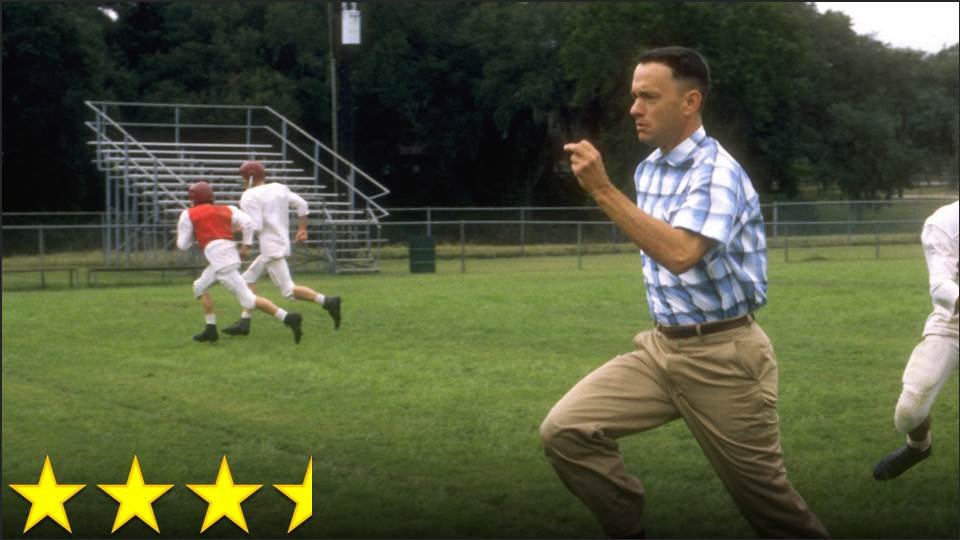My brother got very upset with me a few weeks ago when he found out that I, the film major in the family, hadn’t seen Forrest Gump, and understandably so – it’s one of the most famous movies ever and it’s by my favorite director. That being said, we must remember that it’s not a film that critics praised or that academics have felt the need to seriously studied. It’s one of those films that has actually been the subject of much study and scrutiny just from the average movie-goer, if only because of its rather biased historical revisionism. However, now that I’ve seen it myself, I’d like to look at another strange aspect of the film: the story.
What makes this movie really stand out as a story, not just as a technical accomplishment, is that Gump himself has no ambitions in most of the film. He doesn’t really plan on going to college, or plan on meeting the president(s), or plan on going to the army, or plan on starting his own shrimp business. He doesn’t even try to do these things. I know that’s related to the theme of the movie, but it shouldn’t make for a good story. The fact that Forrest is by and large a passive character (at least emotionally) should also make the film rather boring, yet it’s entirely captivating.
I think it works well because it alternates between two interlinked stories: one being a comedy, the other being a drama. The comedy comes from the fact that Forrest has clearly lived the most interesting life imaginable, but he has no conception of just how absolutely amazing it is. Most scenes in this movie could easily make for movies of their own – how Elvis learned his dance, how Lennon wrote “Imagine,” etc., but instead we observe all of them briefly through the eyes of someone who can’t appreciate them, which has a funny kind of irony to it. The audience is waiting to see how he’ll behave around the next famous person he’ll meet, and the next one, and the next one. It’s more of a running gag than a story, but it’s fascinating nonetheless.
The dramatic story is actually the story of Jenny. She, too, lives through an unbelievable life. Her story, however, is much clearer. Ever since childhood, she’d rather run from her problems (or wait for them to go away) than confront them. She’s accepted the fact that people take advantage of her and mistreat her, and she allows it, while at the same time, she runs across the country trying to escape her past and find herself. Of course, she realizes in the end that she could have had the happy, fulfilling life she wanted if she’d just allowed Forrest to love her, but instead she insisted on running. It’s rather tragic, but at least the last few months of her life are happy enough.
The synthesis of these two stories may reveal the Major Dramatic Question: Will Forrest and Jenny ever tie the knot? I do think that’s the main pull of the story, but it’s not used the way most narrative scholars and writers would say it should be. Only a few scenes are focused on moving the characters towards the climax, and they’re all scattered about, mixed in with scenes that don’t push the plot forward at all. It’s never clear that Forrest’s main goal in life – in everything he does in the film – is to resolve this particular conflict, so naturally it feels like most of the film doesn’t have much conflict.
On the other hand, every now and again, a story is written about a character with such a strong personality and such an interesting life that an audience is willing to be with that character through anything, even if there’s virtually no conflict. At the end of the day, I’d gladly sit on that bench next to Forrest and listen to him telling his stories just because he’s (perhaps paradoxically) so interesting to listen to, which makes for a good movie. Would it work well as a play? Probably not. It might not even work well with any other actor, writer, director, etc., but somehow, as it is, Forrest Gump makes for one heck of a movie. And that’s about all I have to say about that.



